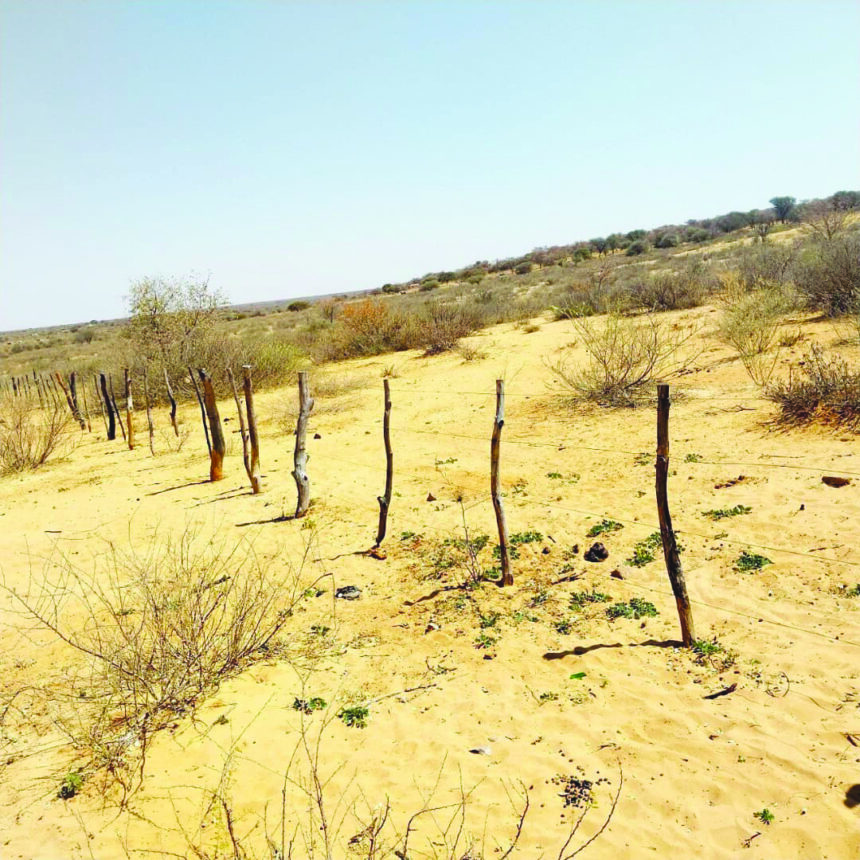Zebaldt Ngaruka
EPUKIRO – The chairperson of the Omaheke land board, Elias Tutu Muundjua, has said most of the region’s communal grazing areas are fenced off illegally by community members.
He made these remarks in an interview with New Era during the Ministry of Agriculture, Water and Land Reform’s visit to the region recently.
Land reform minister Calle Schlettwein said while the region is faced with severe drought and illegal fencing, especially by well-off community members, it remains a concern to the land board as large portions of land are fenced off, and livestock suffer in the process.
“This is a worrisome situation, as there is no single fence in Omaheke that was legally approved by the board. The livestock commonage area is fenced off in bigger sizes,” said the board chairperson.
Muundjua said the painful part is that farmers who fenced a large portion of land still grace their animals on the small portion of remaining land with the poor farmers.
“This is what we call selfish behaviour. Where do they expect other communal farmers to graze on, considering the large portions they fenced off?” he asked.
Regarding the board’s position on the illegal fencing, the board chairperson said the mapping has been done for those illegal fencing, and the dates for removal will be announced in due course.
“We will follow all the legal procedures, and the owners of these illegal fences will be informed accordingly,” he noted.
He further encouraged farmers to follow procedures when erecting fences to avoid unnecessary costs.
“We know that fencing is one of the requirements for successful or decent farming, but laws must be followed instead of causing havoc,” he said.
The chairperson clarified that the removal exercise applies to the new fences that were built after the Proclamation of the Land Act 2000. “The old fences need to be applied for. They are not part of the process, and we are now referring to the new fences,” he clarified.
He added that the land board allocates only 50 hectares of customary land.
“This means that the 50 hectares are earmarked for household and small gardens. The other bigger size is for grazing, and people must not fence off or reside there,” emphasised the board chairperson.
Muundjua stated that community members do not respect the traditional authorities and chiefs as the custodians of land on behalf of the government.
“This is unacceptable, and we have agreed with the minister to remove all illegal fences all over Omaheke. The government has provided a budget, and the Ministry of Sport, Youth and National Service has appointed staff to do the job,” he said.
Traditional authorities in the region have awarded land for Eiseb Block, Ondero and Otjozondera Cooperatives, but the official handover is delayed due to illegal grabbing of land in those identified areas.
“The situation has caused the delay. Community members involved in the unlawful act were ordered to vacate those areas soon. They must remove their fences for the ministry to hand over the land officially to the cooperatives,” he urged.
On the issue of mushrooming of forest that prevents or affects grazing in many communal areas, he advised farmers to approach the agriculture ministry, as there are various projects in that aspect that can be applied for.
“Our people do not do that. The farmers or community members can even approach the forestry ministry for permission to debush areas for their benefit and that of livestock,” he said. -zngaruka@yahoo.com


